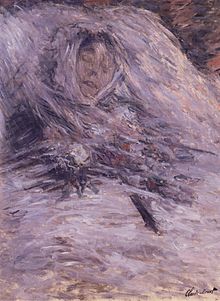Welcome to the Wakefield Doctrine (the theory of clarks, scotts and rogers)
This is the Wakefield Doctrine’s contribution to the Six Sentence Story bloghop.
Hosted by Denise, governed by the Lord High Sextuplet (aka ‘the God of as many arms as fingers…sorta’)
Prompt word:
MILK
The phrase ‘...the milk of human kindness‘, deployed by one of the earliest bloggers was, in the context of the play, a powerfully ambiguous burn.
As humans, cursed with all the ambitions of the devil yet little of the blindly powerful faith of the angels, our playwright (Will@stratford), reminds us that we are created to doubt: ourselves, our motives, others, (especially their motives), all under the guise of entertainment and diversion.
It has been said that the degree of difficulty distinguishing between the living and the dying is inversely proportional to the relationship binding one to the other; the future of the stranger lying in a hospital bed can be evaluated with a five minute chat with a nurse or physician or with a glance at the cybernetic clergy watching over the patient; because, well, facts are facts.
Taking a measure of the state of vitality of a loved one is an order of magnitude greater in difficulty; such relationships are always, (to one degree or another), interactive because in the creation of the pair, each becomes a part of the other.
How can one be expected to maintain the mature rationality exhibited in our first scenario; that said, a gift from the realm of science, in general, and quantum physics, in particular, is the most-misunderstood concept of quantum entanglement, that, in terms of change and effect, two can become one.
Arguably, the true reason for mankind being cast from a certain Garden lay not in disobedience, but rather defiance; the willingness to sacrifice all to change the fate of a loved one, to bargain without thought of recourse, to invoke and facedown both the Good and the Profane demonstrates not weakness, rather the very human (and oft-flawed) quality of love.
*


 About clarkscottroger
About clarkscottroger
Interesting point about the fall in Genesis 3 that it was done “not in disobedience, but rather defiance”. As I see it once they disobeyed and ate from the tree of knowledge of good and evil, they would have the motivation to rationalize their own goodness no matter how bad they were. That would involve defiance against any good outside themselves.
After Eve took a bite, I imagine the first marital fight in history occurred. That one ended with Adam himself taking a bite. But from that point on there would always be new motivations to fight over who was the good guy (or gal) and who was the bad one, because now they “knew” and they knew they weren’t the good guys.
Nice tale leading the reader to reconsider what Genesis 3 was all about.
Genesis is to me the most readable and interesting part of the Old Testament once they resorted to the writer of the week (like a prehistoric Cable competition show … ‘Prophets: Who’s the best story writer’)
“As humans, cursed with all the ambitions of the devil yet little of the blindly powerful faith of the angels” – great bit of description of how we tend to be
I like how you explained how defiance caused the fall – I don’t think that invalidates the idea that it was also disobedience, but rather that it was both – the defiance was the motivation for the disobedience. But I get the point that it wasn’t necessarily disobedience merely for disobedience’s (or contrarian’s) sake, and that there were weightier motivation behind it. I fully agree that it didn’t happen merely because, “let’s disobey God, tee-hee,” but that Eve put some genuine thought into the decision.
well, surely that is not a total surprise… second wives* often search for the means to establish their new identity
Adam’s first wife would surely not need to resort to subversion in the process
wonderful – loved the line:
“Arguably, the true reason for mankind being cast from a certain Garden lay not in disobedience, but rather defiance; the willingness to sacrifice all to change the fate of a loved one”
Thank you
That’s a tall glass of milk, deep, even. Disobedience? Defiance? Cool exploration of motivations.
thankee Miz A’vry
Fascinating write! I must admit I had to read it about 3 times for it to sink in. The first and last sentences were my favourite, the sentiment in the last one is beautiful :-)
same here (including the read it 3 times) ;]
people want what people want. interesting six!
they do be like that, no?
👏
[emoji of humble gratitude]
Some say she was tricked while he walked in with eyes wide open.
oh man!don’t get me started on Adam!!
(hint: a total roger (serially, some versions of the story had him complaining he had nothing do to in Paradise and ‘it was her fault’)
Well done.
thanks, Chris
Searching for adequate adjective…exquisite. Yes, that will do nicely.
Since you brought up the “Bard”, imo, this Six rivals Will@ for promoting conversation. A smidge of ontology, dab ‘o epistemology with a dash of theology?
“quantum entanglement”. Yeah, that too.